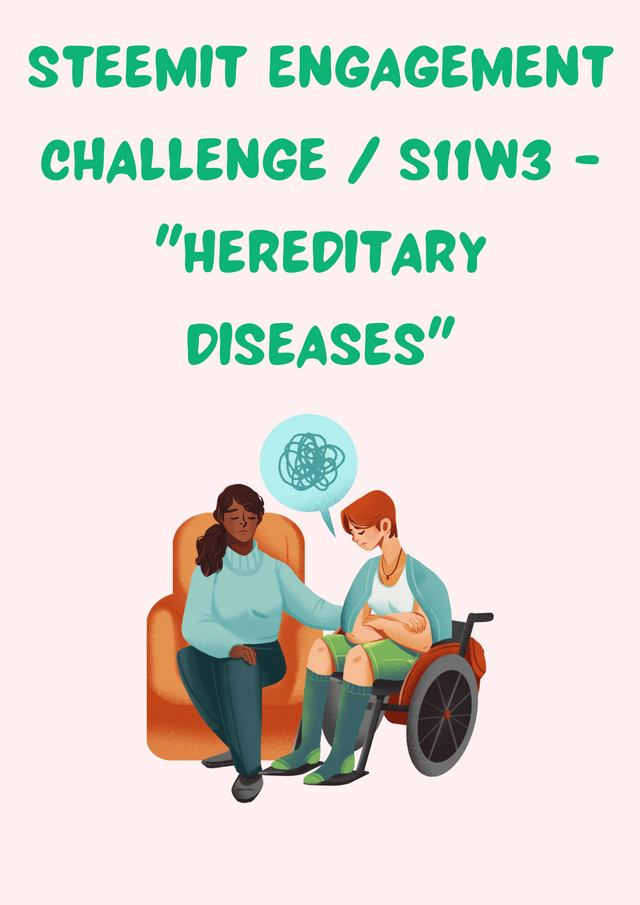Steemit Engagement Challenge / S11W3 - "Hereditary Diseases"

Yes, I am apprehensive that numerous diseases have a heritable component. These conditions are caused by inheritable mutations or variations that are passed down from parents to their children. Commons examples included cystic fibrosis Huntingtons diseases sickles cell anemia and certain types of cancer. The presences of specifically gene variations can increased the likelihoods of developing these conditions but it's essentially to understand that genetics is just one factor influencing diseases risk. Lifestyles choicest and environmentally factors also play pivotal roles.
Advancements in inheritable research and testing have allowed for better understanding and early detection of heritable diseases, enabling individuals to take visionary measures to manage their health. inheritable counseling and testing are precious tools for assessing the risk of inherited conditions and making informed decisions about preventative measures and medical treatments.
In some families, there might be a history of conditions like diabetes, heart disease, certain types of cancer, asthma, or autoimmune disorders, which can have a inheritable component. When certain gene mutations are present individual's may have a advances predispositions to developing these disease's.
It's important to note that inheritable predisposition does not guarantee that a person will definitely get the disease, as lifestyle and environmental factors also play significant roles. Regular health screenings, healthy lifestyle choices, and early detection through inheritable testing can help individuals manage their health and reduce the risk of developing heritable diseases. inheritable counseling is often recommended to understand individual risks and make informed decisions regarding healthcare.

I do not personally take health forecasts, but I can give information and insights about colorful diseases and their implicit implications. Health forecasts for diseases often involve data analysis, epidemiological trends, and prophetic modeling. Medical professionals and researchers use these forecasts to anticipate disease patterns, allocate resources, and develop targeted interventions.
Predictive analytics and machine learning are decreasingly being employed to forecast disease outbreaks, track the spread of contagious diseases, and identify implicit risk factors. These forecasts can assist healthcare systems in preparing for implicit surges in cases and implementing preventative measures.
It's important to note that health forecast's are based on available data and assumption's and they can evolved as new information emerged. While forecasts can be precious tools for planning and preparedness, they aren't absolute predictions and should be interpreted with caution. Regular updates and adjustments based on real- world compliances are essential for enriching the accuracy of health forecasts.
The potential for curing heritable diseases depends on the specific disease and the current state of medical research and technology. Some heritable diseases can be managed and their symptoms alleviated through treatments, but a complete cure for certain heritable diseases remains grueling .
Recent advancements in gene therapy and inheritable editing techniques, similar as CRISPR- Cas9, offer promising avenues for implicit cures. These approaches aim to correct or replace defective genes responsible for heritable diseases. However, practical application and long- term effects are still under investigation.
It's important to acknowledge that the complexity of inheritable variations and ethical considerations surrounding inheritable manipulation make the path to curing heritable diseases intricate. While significant progress has been made in understanding and addressing similar conditions, achieving a comprehensive cure for all heritable diseases is a complex and ongoing scientific endeavor.

